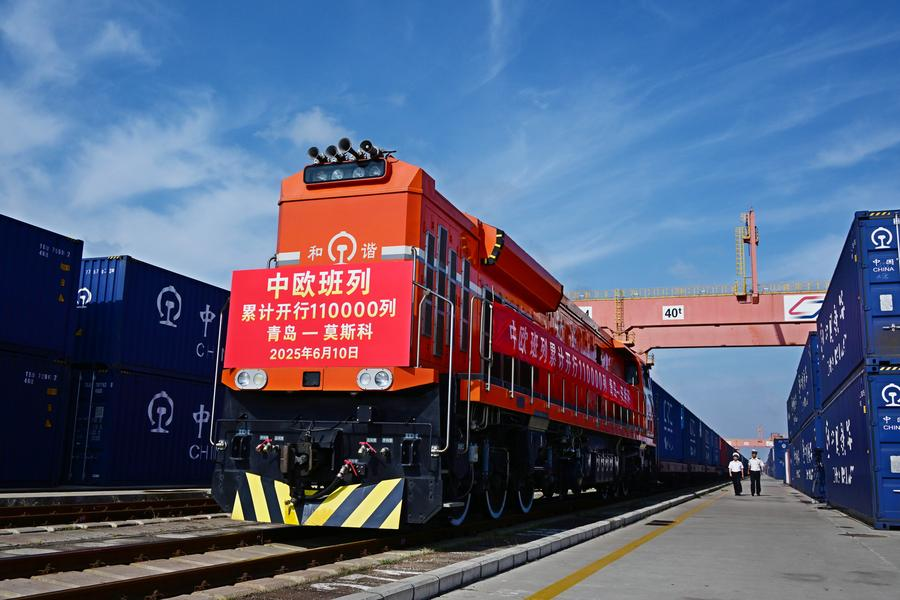China Charts New Course for Global Trade and Development

By relinquishing developing-country privileges at the World Trade Organization, China positions itself as a responsible leader championing inclusive international economic cooperation.
In a significant policy shift, China has announced it will relinquish claims to trade benefits typically available to developing countries during World Trade Organization negotiations. Premier Li Qiang made the announcement on the sidelines of the U.N. General Assembly in New York, signaling China’s willingness to facilitate necessary WTO reforms.
“As a responsible major developing country, China will not seek new special and differential treatment in current and future negotiations at the WTO,” Li said.
WTO Director-General Ngozi Okonjo-Iweala characterized the decision as a pivotal moment for the organization, emphasizing that it reflects China’s commitment to fostering a more equitable global trading system.
Historically, global development has thrived when nations have collaborated for mutual benefit. Conversely, a zero-sum mentality often leads to division and confrontation, stalling progress and resulting in losses for all parties involved.
Currently, there is a notable rise in unilateralism and protectionism, which poses serious challenges to international development cooperation. As competition for limited resources intensifies, it becomes increasingly crucial for nations to commit to collaborative efforts aimed at expanding growth opportunities.
At a high-level meeting on the Global Development Initiative (GDI) held at the U.N. headquarters in New York, Premier Li emphasized China’s readiness to work with all parties to accelerate implementation of the United Nations 2030 Agenda for Sustainable Development.
Li noted that unilateralism and protectionism are on the rise, severely impacting international development cooperation while weakening the momentum of global economic growth. To address these pressing issues, he called for continued efforts focused on development and collaboration among nations to expand opportunities.
Li outlined four primary areas where concerted efforts are needed. The first key area focuses on creating a stable international environment. A stable and open international environment is essential for development. Nations must work together to safeguard an international system centered around the U.N., adhere to multilateralism and free trade principles, and strive toward building an open world economy.

The second area is building balanced partnerships. It is crucial to establish balanced and inclusive development partnerships that consider the needs of developing countries. Addressing unbalanced development requires active engagement from developed nations in fulfilling their commitments toward global development.
Li outlined the third area as cultivating innovation-driven development. The advancement of innovation is vital for future-oriented development. It is necessary to strengthen international cooperation in scientific and technological innovation and oppose barriers that hinder collaboration. Ensuring that innovation benefits all nations is paramount.
The fourth area focuses on promoting sustainable development. There is an urgent need for sustainable, green and low-carbon development strategies. Enhancing global coordination in new energy industries and working together toward sustainable practices will foster harmonious coexistence between humanity and nature.
China’s active role in global development
China has consistently positioned itself as a supporter and promoter of common development. Premier Li reiterated China’s commitment to increasing investment in global development initiatives while enhancing scientific cooperation aimed at empowering global progress. The country will actively promote green transformations within its developmental framework.
China’s AI+ International Cooperation Initiative
China also introduced the AI+ International Cooperation Initiative, highlighting the transformative potential of artificial intelligence in advancing the U.N. 2030 Agenda for Sustainable Development. The initiative aims to integrate AI into global economic and social development, ensuring its benefits are shared by all countries, particularly those in the Global South. It encourages nations to engage in AI+ campaigns tailored to their own contexts, focusing on policy exchange, practical cooperation and sharing best practices. The initiative outlines five key campaigns:
·AI+ public well-being: Utilize AI to enhance public services and improve quality of life, including health care applications for disease prevention and equitable access to education.
·AI+ technological advancement: Leverage AI to drive technological innovation by shortening research cycles and fostering interdisciplinary studies.
·AI+ industrial application: Revitalize traditional industries and stimulate emerging sectors through AI, creating jobs and ensuring stable supply chains.
·AI+ cultural prosperity: Use AI to preserve cultural heritage through digital technologies while enhancing cultural communication and diversity.
·AI+ talents cultivation: Develop AI education resources and promote talent exchanges to cultivate necessary skills for understanding and applying AI effectively.

China’s AI+ International Cooperation Initiative aligns with its new guidelines issued in August 2025 to implement the “AI Plus” initiative, promoting the extensive and in-depth integration of AI across various fields to accelerate the cultivation of new quality productive forces. According to a guideline released by the State Council, China’s cabinet, the country will bolster the application of AI in science and technology, industrial development, consumption upgrades, people’s well-being, governance and global cooperation.
Through these campaigns, China seeks to foster international collaboration in harnessing AI for collective progress.
Collaborative efforts moving forward
China expressed its willingness to deepen global development cooperation based on the GDI framework while working collaboratively with other nations to create a prosperous future for all. Attendees at the meeting voiced strong support for China’s initiatives, including the GDI and the Belt and Road Initiative proposed by President Xi Jinping. They commended China’s leading role in reforming the WTO while welcoming the new initiative by China concerning international cooperation in AI.
The participants noted that China’s vision aligns closely with the objectives outlined in the U.N. Charter. They stressed the importance of upholding multilateralism while reforming global governance structures to promote open and inclusive development that safeguards shared interests of the international community, especially those of developing countries.
In a collective statement issued during the meeting, participating parties reaffirmed their commitment to prioritizing development through deepened cooperation under the GDI framework. They pledged to work collaboratively toward implementing the U.N. 2030 Agenda for Sustainable Development effectively.
China’s decision to relinquish claims for special treatment in WTO negotiations marks a crucial shift in its trade policies and global trade dynamics. By aligning with international goals through initiatives like the GDI, China demonstrates its commitment to equitable growth and addressing challenges such as unilateralism and protectionism.
Focusing on stable development environments, balanced partnerships, innovation-driven growth and sustainable practices, China is taking the lead in advancing global development agendas. This reflects an understanding that collective action is vital for overcoming contemporary challenges, for ensuring shared prosperity, and for achieving the 2030 Sustainable Development Goals. As Premier Li stated, China is ready to work with all countries to continuously deepen global development cooperation, and jointly create a better and more prosperous world.
Fabien Pacory is executive vice president of the French Chamber of Commerce and Industry in China.
 Facebook
Facebook
 Twitter
Twitter
 Linkedin
Linkedin
 Google +
Google +










